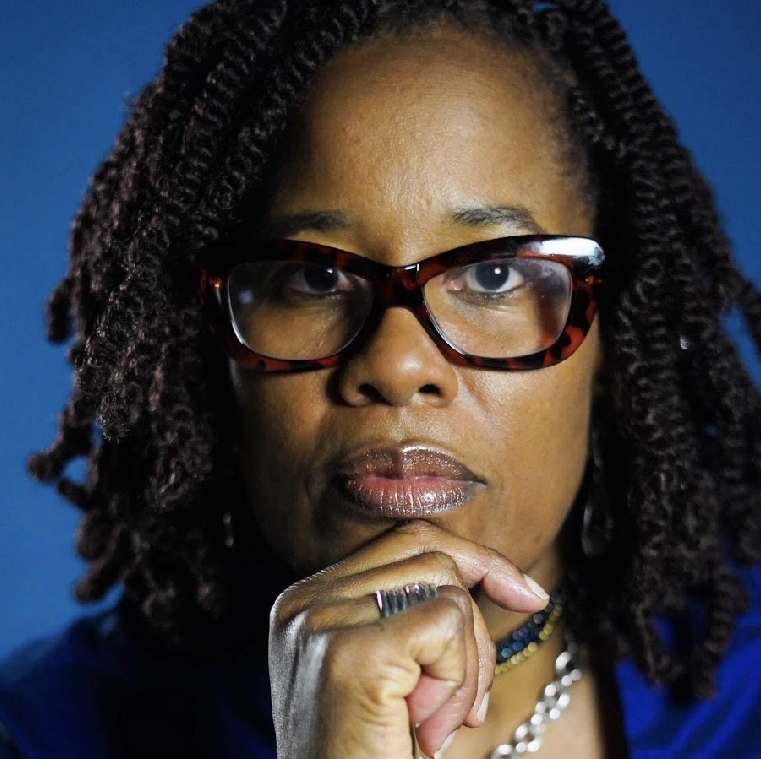[ad_1]

By Dr. Kaye Whitehead
My grandmothers were brave, strong, courageous and able to withstand great force and pressure. They were Black women in America, and they learned how to turn their anger into activism and their strength into survival. I come from a long line of strong and angry Black women. My Nana used to say that you have to decide if you are willing to die for your freedom in this country. She said that this was a daily decision that Black women had to confront and settle. She was angry all of the time, and she said that being a Black mother in this country meant that you had to be prepared to fight every day: for your life and for the life of your children. You had to be willing to stand between the world and your children. You had to be ready to die so that they could live free. Black women are the consciousness—the awareness and the sentience—of this racist and soul-sick society. We were there when they stole us from our home, and we watched as some of our people chose to jump overboard rather than journey to an unknown land. We were angry then, but we chose to survive. We know that the route to the Americas is riddled and lined with our bones. We were there when they inspected us, bargained over us, raped us and stole our children from us. We were angry then, but we chose to survive.

One of those women borne in slavery was my great grandmother’s grandmother. I am only six generations from being enslaved. She was born at the tail end of the Civil War, and though she did not grow up enslaved, she carried the memories and the stories with her. She would speak her truth, my Nana would say, to anyone who could shoulder the weight of the pain. She was a big woman: bold, Black and brilliant. She refused to be broken or terrified into submission. She survived slavery, and as a little girl in Olar, South Carolina, she witnessed the birth of the Ku Klux Klan. Founded only six days after the ratification of the 13th Amendment, the KKK was one of many secret White societies founded to restore White order and rule back to the South. She remembered the Klan riding through the town and it made her angry. She believed that the greatest weapon that Black mothers had was our ability to survive the Whiteness of this world so that our children could one day defeat it. Black women, she said, knew how to survive and how to fight.
We have been fighting against this system since we arrived here. In 1654, some three hundred and twelve years before the beginning of the modern civil rights era, the first documented Black protest happened in America. Eleven enslaved men and women from New Netherland (later renamed New York) petitioned and won both their freedom and their land. The earliest account of a planned slave rebellion (it was discovered before it happened), occurred in 1687 on a plantation in Virginia. My great grandmother was six months old when the KKK showed up at the door of her home and shot and killed her father. He was both West Indian and a member of the Navajo tribe and had been working to organize the Black vote. She grew up watching her mother struggling to survive in the same town around the men who killed her husband. She remembered how her mother picked up her father’s work and continued to try to get Black people to have the courage to exercise their right to vote. She was a warrior, and she operated with a degree of alertness, alacrity, diligence and anger. She had one standing rule that had been passed down by every Black woman in my family: we protect the children. We put them behind us. We shield them, we love them, and we nurture them. We survive Whiteness so that they can one day defeat it.
My mother called me after she saw the video of George Floyd, and she said that when he called for his mother, every muscle and bone and tendon in her body reacted. She said that he was not just calling for his mother, he was calling for all Black mothers. His cry was one that stretched back to the first child stolen from Africa who called for their mother as they were being led onto that ship. It was the same cry that a child made when they were being sold from the mother and shipped from Jamestown to Columbia. It was the same cry that Emmett Till or Tamir Rice or Trayvon Martin probably made in those last final moments. Black mothers, she said, were ignited that day once again and now we must heed the call. We must get angry and then we must fight.
Karsonya Wise Whitehead ([email protected]; Twitter: @kayewhitehead) is the #blackmommyactivist and an associate professor of communication and African and African American studies at Loyola University Maryland. Recently as Baltimore’s “Best Radio Show Host,” she is the award-winning host of “Today With Dr. Kaye” on WEAA 88.9 FM. She is sheltering at home in Baltimore City with her husband and their two sons.
The opinions on this page are those of the writers and not necessarily those of the AFRO. Send letters to The Afro-American • 1531 S. Edgewood St. Baltimore, MD 21227 or fax to 1-877-570-9297 or e-mail to [email protected]
[ad_2]
Source link

